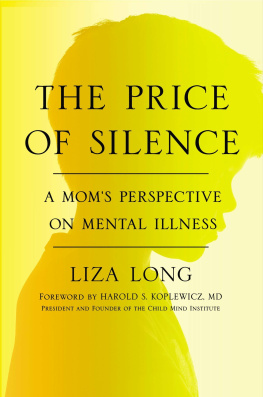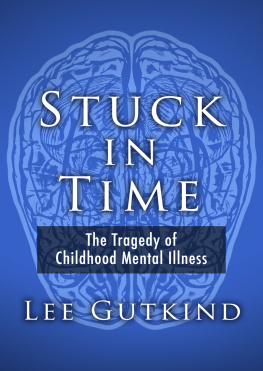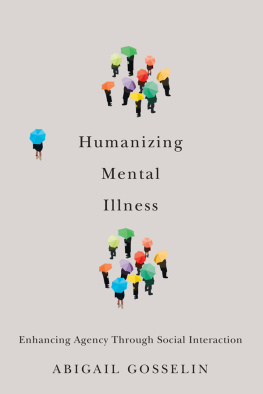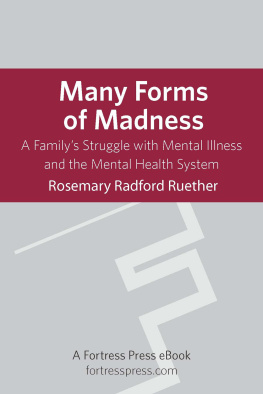HUDSON STREET PRESS
Published by the Penguin Group
Penguin Group (USA) LLC
375 Hudson Street
New York, New York 10014

USA | Canada | UK | Ireland | Australia | New Zealand | India | South Africa | China
penguin.com
A Penguin Random House Company
First published by Hudson Street Press, a member of Penguin Group (USA) LLC, 2014
Copyright 2014 by Liza Long
Penguin supports copyright. Copyright fuels creativity, encourages diverse voices, promotes free speech, and creates a vibrant culture. Thank you for buying an authorized edition of this book and for complying with copyright laws by not reproducing, scanning, or distributing any part of it in any form without permission. You are supporting writers and allowing Penguin to continue to publish books for every reader.
 REGISTERE D TRADEMARKMARCA RE GISTRADA
REGISTERE D TRADEMARKMARCA RE GISTRADA
LIBRARY OF CONGRESS CATALOGING- IN-PUBLICATION DATA
Long, Liza.
The price of silence : a moms perspective on mental illness / Liza Long ; foreword by Harold Koplewicz.
pages cm
Includes bibliographical references and index.
eBook ISBN 978-0-698-16133-7
1. Children with mental disabilitiesPsychology. 2. Violence in children. 3. Parents of children with disabilities. I. Title.
HV891.L5966 2014
362.2083dc23 2014009322
Penguin is committed to publishing works of quality and integrity. In that spirit, we are proud to offer this book to our readers; however, the story, the experiences, and the words are the authors alone.
While the author has made every effort to provide accurate telephone numbers, Internet addresses, and other contact information at the time of publication, neither the publisher nor the author assumes any responsibility for errors or for changes that occur after publication. Further, publisher does not have any control over and does not assume any responsibility for author or third-party Web sites or their content.
Neither the publisher nor the author is engaged in rendering professional advice or services to the individual reader. The ideas, procedures, and suggestions contained in this book are not intended as a substitute for consulting with your physician. All matters regarding your health require medical supervision. Neither the author nor the publisher shall be liable or responsible for any loss or damage allegedly arising from any information or suggestion in this book.
Version_1
For Michael and the one in five children who have mental illness
CONTENTS
FOREWORD
I ve admired Liza Long since she made the decision, at a very dark time for all of us, to speak up in a courageous and constructive way.
When Adam Lanza walked into Sandy Hook Elementary School and killed twenty children and six of their teachers, Liza felt anguish not only because so many were senselessly murdered, but because she identified with Nancy Lanza, Adams mother and his first victim.
Liza identified with the story of a woman struggling to help a child with mental illness. She raised her voice in a blog post that would go viral called I Am Adam Lanzas Mother.
In that blog post Liza shared her own experience of living with a child with mental illnessa son well loved and loving, toowho has a pattern of erupting in unpredictable bouts of violence. Shed been terrified by her sons threats of suicide, bruised by his rages, and chronically worried about the possibility that he might hurt someone else. Theyd been through a range of diagnoses, from ADHD to oppositional defiant disorder to intermittent explosive disorder. Shed been as private as she could about her struggles to get care for him, to protect them both from the shame and stigma that attaches to mental illness. Like so many parents of children with psychiatric illness, she didnt want him to be marginalized, and she didnt want to admit how bad things really were.
Like many parents, I have tried for years to manage my sons condition essentially on my own, she writes in this new book. Ive thought that I could wish him into wellness. Ive even denied that he had problems. The emotional anguish of my blog post came out of that space, as a national tragedy sparked a private moment of raw honesty.
What Liza found out when her raw honesty went viral was how many, many other parents there are who are struggling and worrying as she had been, but also afraid to be public about their struggles and worries. With that post Liza took the brave step of becoming an advocate for better understanding, and better resources, for families struggling with mental illness.
This book is another step in that direction: to use her painful experiences as a catalyst for change by sharing the kinds of details that are so often kept private. And her son, tooa very bright young man who, of course, doesnt want to be a child with uncontrollable rageshas come to hope that telling his story will help lead to the kind of treatment that would liberate him from these harmful episodes.
I had the opportunity to meet Liza in Washington, D.C., at a congressional hearing on how we can improve mental health care, where I was struck by the power of her testimony. Its one thing for professionals like me to advocate greater understanding and acceptance of mental illness, as Ive been doing for thirty years as a child and adolescent psychiatrist. But its only with passionate and articulate parents speaking up about what theyre going through, sharing real experiences, that we will truly break down the barriers to getting quality care for more kids.
Liza has come to see the world in terms of two groupsboth of whom she addresses in this book, and both of which are terribly familiar to me.
The first is families, like hers, who have a child with a developmental disorder or mental illness, for whom the difficulty and complexity and anxiety of living with it and struggling to get care are now their normal. I know many, many of these families, and I know the remarkable lengths they will go, at great personal cost, to help their kids.
The second are families who dont have that firsthand experience. While many are understanding and supportive, among their ranks are, unfortunately, too many others who make judgments about parents who do. It pains me every time I read accusations that parents are inventing or exaggerating their kids problems, causing their kids problem with bad parenting, gaming the system so their kids can get ahead. This is so far from the truth of the families I see, who are in true distress. This is why speaking up for kids with mental illness is so important.
Liza uses her own story as a lens through which to examine the system that families find themselves dependent onfrom the schools to the juvenile justice system. And lest you think the latter is only relevant to families where parents dont care, or dont try, or kids who are just plain bad kids, consider Lizas account of her eleven-year-old sobbing in her arms after being arrested for assaulting his father.
One of the things we are least willing to recognize is the number of children with untreated mental illness who end up in the juvenile justice system and later the penal system. Making it easier for them to get help when they are young is not only infinitely more humane, it saves squandered resources. How can it be that we as a society cant find the funds for young children to get effective behavioral treatment, for overwhelmed parents to get respite, for enough effective residential treatment facilities for children who are a danger to themselves or others, but we can spend over $200,000 a year to incarcerate them when they are teenagers or adults? The math doesnt add up.











 REGISTERE D TRADEMARKMARCA RE GISTRADA
REGISTERE D TRADEMARKMARCA RE GISTRADA